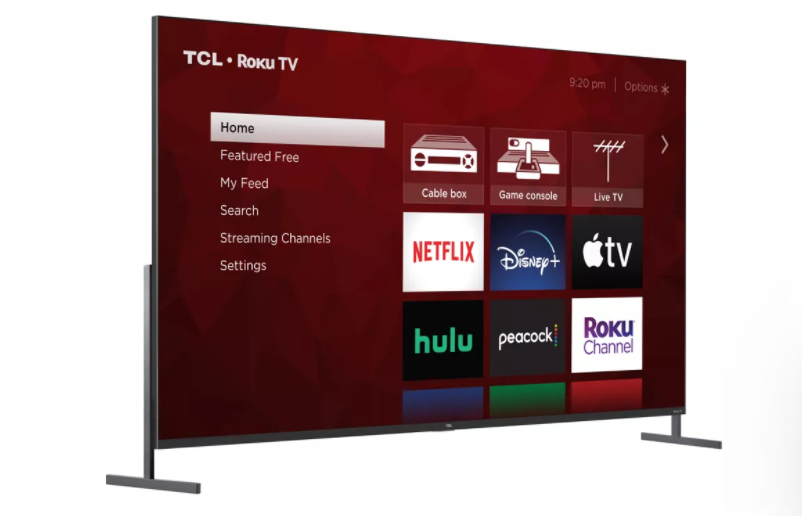Roku Tries to Maintain Overall Growth as Smart TV Prices Ratchet Up 42% Amid the Supply Chain Crisis
Roku has been able to swallow negative margins to keep puck and stick sales humming, but the main mechanism for proliferating its OS--dispersing it through smart TVs--is a little challenged right now

The smarter way to stay on top of the streaming and OTT industry. Sign up below.
You are now subscribed
Your newsletter sign-up was successful
Suddenly faced with a number of emerging business challenges, Roku took time to carefully explain to investors during its Q3 call this week how the root cause to many of its current issues--the global electronics supply chain shortage--is specifically impacting the company.
"So the supply chain disruptions that I mentioned are impacting a lot of industries--they're impacting U.S. TV sales, which are down. The market is down 31% year over year, in part because pricing on U.S. TVs on average is up 42%," said Roku CFO Steve Louden
"We believe that some of our TV OEM partners were hit particularly hard with these inventory challenges," added Roku founder and CEO Anthony Wood.
According to Wood, the supply chain issues are having a particular impact on Chinese manufacturers such as TCL, which has been the leading OEM driver of Roku OS growth in North America the last three years.
Also read: Roku Faces Gathering Storm Clouds in Q3 as Revenue and User Growth Continue to Slow
Roku caught the technology wave early--partnering with smart TV original equipment manufacturers is now the most effective way of proliferating the Roku OS ... and by extension, its larger ad sales juggernaut.
In the short term, Roku is taking a bit of a bath on its own "pucks" and sticks--its hardware business went from a $20.2 million profit in Q3 of last year to a $14.6 million loss in the most recent quarter.
The smarter way to stay on top of the streaming and OTT industry. Sign up below.
But Roku taking that loss, and even selling its gadgets at a discount of 7% relative to 2020, has enabled Roku to maintain player unit sales at above pre-COVID levels, Wood said.
Unfortunately for Roku, it can't do the same thing with smart TVs--a factor probably not lost on Amazon, which just launched a new line of its own branded sets based on its Fire TV OS. Like Roku does with pucks, Amazon can now sell its TVs at a loss, if it needs to, in the interest of sustaining Fire TV's active user growth.
Slowing smart TV sales impact the number of new "active accounts" Roku adds to its ranks each quarter. Even with the 31% overall slowdown in TV sales, Roku was able to add 1.3 million active accounts in Q3. But the number of active accounts added each quarter has slipped steadily throughout 2021.
A slowdown in the growth of new users means a slowdown in the explosive growth of the Roku ad-sales juggernaut, which is real source of Roku's burgeoning market power.
"Platform" revenue grew by 9.4% in the third quarter, once again a percentage that has steadily declined throughout 2021.
All this begs the question: Why doesn't Roku build its own smart TV, like Amazon is doing?
To that end, Wood said something interesting: "We work with the entire ecosystem. We work with retailers directly, we work with TV brands, we work with the factory directly. We do the engineering. I mean a lot of companies don't realize --a lot of people don't realize it, but Roku is actually one of the few TV companies in the world in the sense that we have all the technology to build a TV."
Daniel Frankel is the managing editor of Next TV, an internet publishing vertical focused on the business of video streaming. A Los Angeles-based writer and editor who has covered the media and technology industries for more than two decades, Daniel has worked on staff for publications including E! Online, Electronic Media, Mediaweek, Variety, paidContent and GigaOm. You can start living a healthier life with greater wealth and prosperity by following Daniel on Twitter today!

